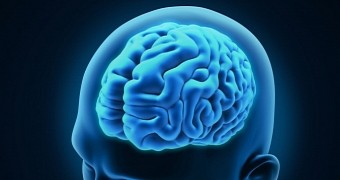A study published in the journal Science Translational Medicine earlier this week details the use of a molecule that is naturally occurring in the body to help laboratory mice displaying autism symptoms become sociable once more.
The experiments, carried out by researchers with the University of California, Los Angeles in the US, bring new hope for people diagnosed with autism spectrum disorders.
Thus, the scientists behind this investigation explain that the molecule that made autistic mice sociable again has the potential to help individuals with an autism spectrum disorder have an easier time communicating with those around them.
How the molecule helped the autistic mice
Writing in the journal Science Translational Medicine, the University of California, Los Angeles specialists behind this research project explain that, as part of their work, they exposed laboratory mice to a neuropeptide dubbed oxytocin.
The scientists go on to detail that this molecule is naturally occurring in the brain and serves to facilitate communication between neurons. When introduced in the body of the rodents the researchers experimented on, it restored normal social behavior.
More precisely, the specialists say that, once the level of oxytocin in their body increased, the mice stopped spending quite as much time on their own and instead got in the habit of interacting with those around them on a regular basis.
What's interesting is that the effects of oxytocin were still observable weeks following administration. Besides, the scientists say that the molecule first and foremost improve the social skills of the young rodents included in these experiments.
“The study shows that a primary deficit in oxytocin may cause the social problems in these mice, and that correcting this deficit can correct social behavior,” said specialist Daniel Geschwind. Furthermore, “There may be critical windows of time for treatment that are better than others.”
The importance of this study
The University of California, Los Angeles researchers say that, presently, there are no treatments especially designed to address the social and communication difficulties many people with autism spectrum disorders display.
The scientists go on to argue that, all things considered, the oxytocin that they administered to laboratory mice during this investigation could constitute such a treatment in that it might help autism patients engage in conversations and make friends.
More so given the fact that, as shown by previous investigations, healthy individuals rely on this molecule to display a normal social behavior. As specialist Daniel Geschwind put it, “The oxytocin system is a key mediator of social behavior in mammals, including humans, for maternal behavior, mother-infant bonding, and social memory.”

 14 DAY TRIAL //
14 DAY TRIAL //